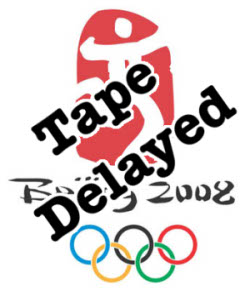So, I wasn’t going to say anything about Palin’s daughter’s pregnancy, as I do think Obama and McCain are right that the private lives of the candidates should be, for the most part, off limits. However, when their private lives impact or reveal their suitability for their potential position, then I think it is not only fair but important to delve into things a bit more.
I have no problem with the fact of the pregnancy. The girl is young, hormones are hard to control, and things happen. And I commend her for dealing with the situation in an adult manner.
However, I do have issue with what this reveals about her mom. Her mom has an abstinance-only position, in spite of the numerous studies that have shown that this is a failed policy, that it doesn’t work as a way of reducing teen pregnancy. And, lo and behold, it didn’t even work in her own family. This, to me, is a sign of the same dogmatic view of life that admits no greys, that ignores the real-world evidence and stubbornly pushes forward even when the reality is that such policies just do not work.
It is fine to live your personal life in such a dogmatic way. That is the beauty of our country and the freedom of religion/belief that it exemplifies. However, this is not the kind of person who should be leading our country. We need someone who can adjust to reality, who can see when things are working and when they are not and who can adjust their position accordingly. We need someone who will listen to voices that disagree with them, who, even though doesn’t like those voices, will consider their counsel and, when prudent and necessary, adjust.
The other thing that bothers me is the free pass this situation is getting from her supporters. I truly do not believe that if the shoe were on the other foot, a free pass would have been given to Obama. They would have blamed any pregnancy of his daughters on their “liberal” and “immoral” lifestyle, the type of lifestyle that, certainly, all Democrats live.
The more I hear about Palin, the more I think she is a bad choice. She was for the “bridge to nowhere” before she was against it. She was for earmarks before she was against them. (And Kerry was the flip-flopper?) She has left the country once in her life. The claims that Alaska is next to Russia and that gives her some foreign policy experience are just ludicrous. When is the last time Russia even mentioned Alaska? Has she even met a Russian national? And that she has foreign policy experience because her son is going to Iraq? That is equivalent to saying my parents are scientists because I went to graduate school.
I’m not entirely sure why, but this election, more than most, has me fired up. I wasn’t even this upset at Bush’s last campaign (though I was when he won). I just can’t believe the way the politics is playing out. I hope that McCain, in choosing Palin, gets those Evangelical votes he so desparately wanted but, in doing so, forfeits the centrist moderates he needs just as badly and thus the election.


 I recently posted about a talk I saw about meeting our
I recently posted about a talk I saw about meeting our